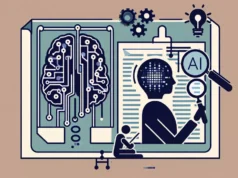In an age where every keystroke, mouse click, and screen tap form part of a digital trail, the most debated question in the tech industry remains – How much data collection is too much? The relevance of this topic is escalating as data collection continues to gain momentum within the cyber world. This means more companies tap into behavioral analytics and data mining to increase their revenues with better-targeted products and services. This process creates a link between Big Data, privacy rights, and ethics that sparks a debate, challenging experts, corporations, legislators, and the public.
Two sides of an unending debate create a distinctive battleground – data collectors who argue that the benefits of data collection outweigh privacy concerns facing fierce resistance from privacy advocates fearing the dilution of individual privacy. Many tech companies argue that collecting and sifting through volumes of data offers numerous advantages, ranging from innovations in healthcare to fraud detection.
Google, Facebook, Amazon – these are just a few giants who provide free-to-use platforms, profiting from the data they collect. These companies posit that the fine-tuning of data collection practices allows for personalized, consumer-focused experiences that ultimately benefit the user. For instance, Netflix’s movie recommendations or Spotify’s playlist suggestions are often appreciated by users.
On the other hand, privacy advocates express their concerns about intrusive data collection practices. A U.K.-based privacy group called Privacy International indicates that the collection, storage and use of personal data can lead to discrimination, financial loss, and reputational damage. They argue that personal data like one’s health status, political views, or sexual orientation should not be used without explicit consent.
An alarming instance exposed by the New York Times reported that countless websites use “session replay” scripts that can record everything a user does, essentially observing over the user’s shoulder. These scripts can capture sensitive data like credit card information, posing potential risks for the consumer.
The debate transcends the tech industry, having implications for legal aspects and societal norms, yet finding the middle ground remains a challenge. Governments worldwide grapple with creating comprehensive legislation that respects individuals’ privacy while leveraging technological innovations.
The European Union has led in this pursuit, implementing the General Data Protection Regulation (GDPR) in 2018. This regulation gives consumers control over their personal data, mandating companies to ask for explicit consent before gathering such data. However, critics argue that the GDPR only transferred power to larger corporations as they have the resources to comply with these regulations.
On the other side of the Atlantic, the United States stands with disparate standards of privacy, highly sector-specific with significant gaps. Interestingly, California’s Consumer Privacy Act (CCPA) ushered a fresh perspective towards data privacy, giving consumers the right to know what personal information is collected and to deny the sale of their personal data.
While the debate continues, the critical role of ethical data scientists shouldn’t be undermined. They can help shape the data collection process to be genuinely beneficial for everyone. Several universities and corporations have introduced data ethics courses and made it a compulsory part of data science training.
In conclusion, the debate over data collection ethics is a complex, ongoing conversation that revolves around values, privacy norms, and practical feasibility. Striking a balance between efficient data use and privacy protection will involve thoughtful legislation, self-regulation by tech companies, and increased public awareness.
Derived from the undeniably integral role data collection plays in our lives, the ethics of its practices need careful evaluation, scrutiny, and control. The debate over how much data collection is too much is sure to persist as technology continues to evolve, shaping the way we interact with the world around us.
Sources:
1. The New York Times. “Websites Are Watching Your Clicks.”
2. Privacy International. “Privacy is a Fundamental Right.”
3. General Data Protection Regulation (GDPR). Official Journal of the European Union.
4. California Consumer Privacy Act (CCPA). California Legislative Information.
5. MIT Technology Review. “Big data, bigger dilemmas: A critical review.”






